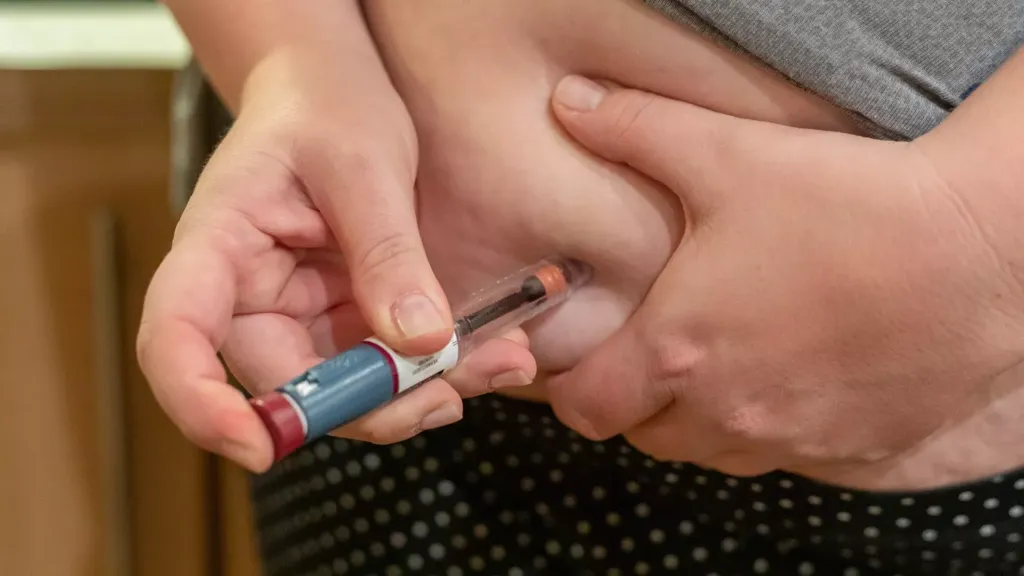Millions of Americans have turned to weight-loss injections originally developed to treat diabetes -- and now, research suggests that these medications may offer a surprising additional benefit: shrinking obesity-related breast tumors.
A new study in mice shows that tirzepatide -- the active ingredient in the popular drugs Mounjaro and Zepbound -- not only helps shed pounds but may also slow or reduce the growth of breast cancer tumors linked to obesity.
Dr. Sue Decotiis, a New York City-based physician who specializes in medical weight loss, told Newsweek she is encouraged by the findings.
She said: "These results, although preliminary, are very promising. From my experience as a weight loss physician, I am not surprised."
The study was conducted by researchers from the University of Michigan. It found that obese mice treated with tirzepatide not only lost about 20 percent of their body weight but also experienced a significant reduction in breast tumor volume.
More than two in five adults in the U.S. have obesity and weight-related diseases continue to place a heavy burden on public health. In November 2023, the U.S. Food and Drug Administration (FDA) approved Zepbound (tirzepatide) as a treatment for chronic weight management in adults. The drug is also marketed as Mounjaro for type 2 diabetes.
Together with other GLP-1-based medications like Ozempic, these drugs have become widely used -- data shows that around 6 million Americans are currently prescribed either Ozempic or Mounjaro, according to the Indiana University School of Medicine.
Now, the new research hints that these drugs could serve a dual role -- helping individuals lose weight while potentially reducing cancer risk.
The study involved 16 female mice genetically prone to obesity. The mice were fed a high-fat diet until they became significantly overweight. At 32 weeks old -- roughly middle-aged in human terms -- they were divided into two groups. One group received tirzepatide injections every other day for 16 weeks, while the other was given a placebo.
The team found that the tirzepatide-treated mice lost about 20 percent of their body weight, mostly from reduced fat mass. In tandem, their breast tumors shrank, with researchers noting that tumor volume was directly tied to body weight and total fat -- suggesting a strong link between fat reduction and tumor growth suppression.
Paper author and physiologist Amanda Kucinskas said in a statement: "Obesity is a significant risk factor for breast cancer, and while it is very preliminary data, our studies in mice suggest that these new anti-obesity drugs may be a way to reduce obesity-associated breast cancer risk or improve outcomes."
The link between excess body fat and cancer is well established. The International Agency for Research on Cancer (IARC) reviewed over 1,000 studies and found consistent evidence that higher body fat increases the risk of at least 13 types of cancer, including colorectal and breast cancer.
Decotiis explained the biology behind this link: "Obesity increases the risk of breast cancer especially in postmenopausal women. Overweight or obese women often experience more aggressive cancer growth and poorer response to treatment.
"Higher levels of estrone, a secondary type of estrogen produced in fatty tissue that is inflammatory and carcinogenic, are found in overweight women after menopause.
Additionally, insulin resistance, which is another inflammatory state, aids abnormal cellular growth patterns which contribute to cancer."
Fat cells aren't just passive -- they secrete substances that can trigger inflammation and influence how nearby tissues behave. In obese individuals, this can create an environment that fosters cancer growth.
Tirzepatide, by dramatically reducing fat stores, may indirectly weaken that cancer-friendly environment.
The Michigan team is now working with nutrition scientist Steve Hursting at the University of North Carolina at Chapel Hill to investigate whether tirzepatide's effect on tumors is solely due to weight loss -- or if the drug may have direct anti-cancer properties.
"While these are very preliminary results, they suggest that this new anti-obesity drug may also have a beneficial impact on breast cancer outcomes," Kucinskas said.
